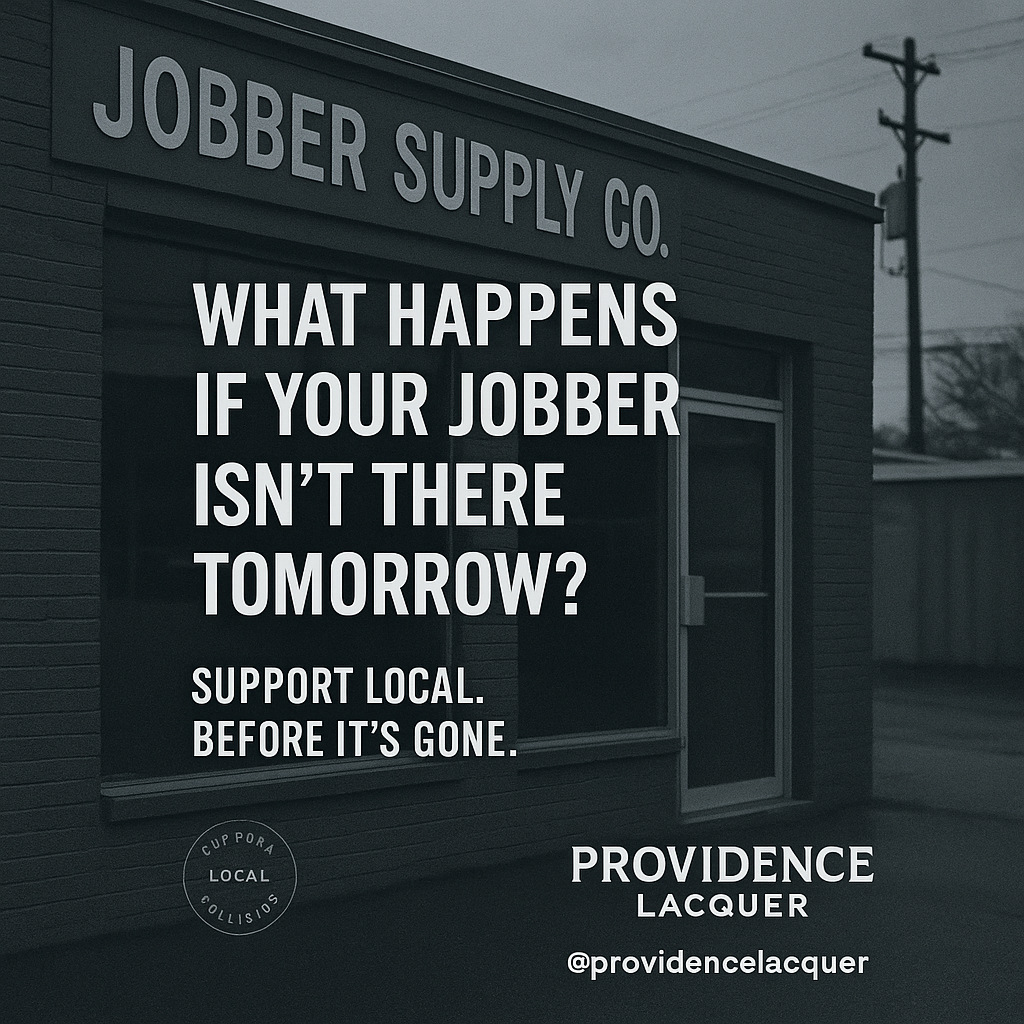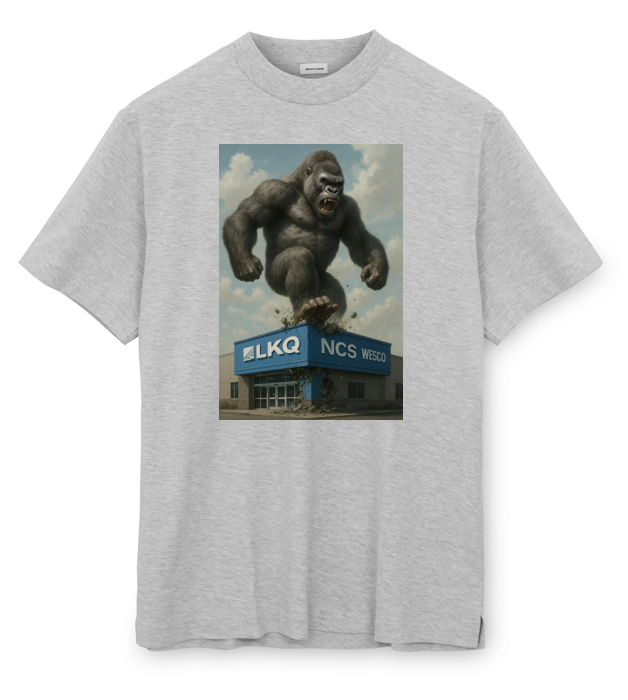Don’t Let the Collision Industry Turn Into the Grocery Industry — Say No to the Walmart Effect
In towns across America, we’ve seen what happens when corporate giants take over an industry: small businesses disappear, customer service declines, and long-term value is replaced by short-term savings. Just look at the grocery sector, where companies like Walmart and Amazon crushed local grocers and reshaped the landscape. Prices dropped—at first—but so did the quality, the personal touch, and the community reinvestment that only small businesses provide.
Now, the same threat is looming over the collision repair industry.
Big paint manufacturers and national chains are racing to consolidate the market. They're building direct supply channels, acquiring jobbers, and prioritizing volume over value. If we’re not careful, we’ll see the same outcome: fewer independent shops, less choice, and a supply chain controlled by a handful of massive corporations that care more about the bottom line than your business.
The Walmart Effect Hurts More Than Prices
When small jobbers disappear, so do the services that make your shop more efficient—custom support, on-site training, local delivery, and relationships built on trust. You're no longer a partner; you’re just a number in a quarterly report.
By supporting family-owned distributors like Providence Lacquer, you're helping preserve an ecosystem that puts your shop's growth and performance first. You get access to top-tier products like Sikkens, Lesonal, Imperium, U-TECH, and Wanda—but more importantly, you get the support of people who are invested in your success.
Choose Growth, Not Consolidation
Don’t let the collision industry become another casualty of corporate control. Say no to the Walmart Effect. Support local. Partner with distributors that understand your business. Protect your ability to choose quality, service, and independence.
Because once the independent options are gone—you can’t get them back.
Think about where you buy your Paint & Materials and the effect it’s going to have on your future and the industry’s future
One clear and well-documented example of an industry where corporate giants have overtaken and crushed small businesses is the grocery and retail sector, particularly due to the rise of Walmart and, more recently, Amazon.
Industry: Grocery & Retail (Walmart, Amazon, Big Box Chains)
What Happened:
Starting in the late 20th century, Walmart rapidly expanded its network of superstores across small towns and suburbs, offering low prices through mass buying power and aggressive supply chain efficiencies. Independent grocers, hardware stores, pharmacies, and general retailers were often unable to compete on price and scale. Amazon accelerated this disruption in the 2000s, enabling online price competition, convenience, and next-day delivery that small businesses couldn’t match without losing money.
Impact on the Market:
Mass Closures of Local Businesses: Thousands of family-owned stores, neighborhood grocers, and specialty shops have closed as they couldn’t match big-box pricing or e-commerce convenience.
Reduced Local Job Creation: While big chains offer employment, they often do so with lower wages and fewer benefits, and they eliminate multiple small-business employers that would otherwise circulate profits locally.
Market Consolidation: A handful of corporations now control the majority of grocery and retail spending, giving them immense power over suppliers, pricing, and inventory.
Supply Chain Vulnerabilities: Centralized systems mean that disruptions (as seen during COVID-19) can cause widespread shortages, unlike decentralized, local supply models.
How It Hurts Consumers:
Fewer Choices: Once local businesses are gone, communities are left with fewer options and often lower quality or generic products.
Pricing Power Shifts: While prices may be low initially, corporate giants can later increase prices or reduce value once competition has been wiped out.
Loss of Personal Service: Independent businesses thrive on relationships, customization, and customer care — all of which are largely absent in corporate-run models.
Community Impact: Local businesses reinvest in their communities through sponsorships, local hiring, and taxes. Corporate stores extract profits and direct them to headquarters.
This dynamic is often referred to as the "Walmart Effect", and it serves as a powerful warning for other industries — like the collision repair sector — where supporting local distributors and family-owned shops may be the only way to preserve consumer choice, personalized service, and long-term industry health.
If you support local and don’t buy from the “Walmart’s” in our industry ask your Providence Lacquer Salesman how to get a “Support Local. Smash Corporate” Shirt



